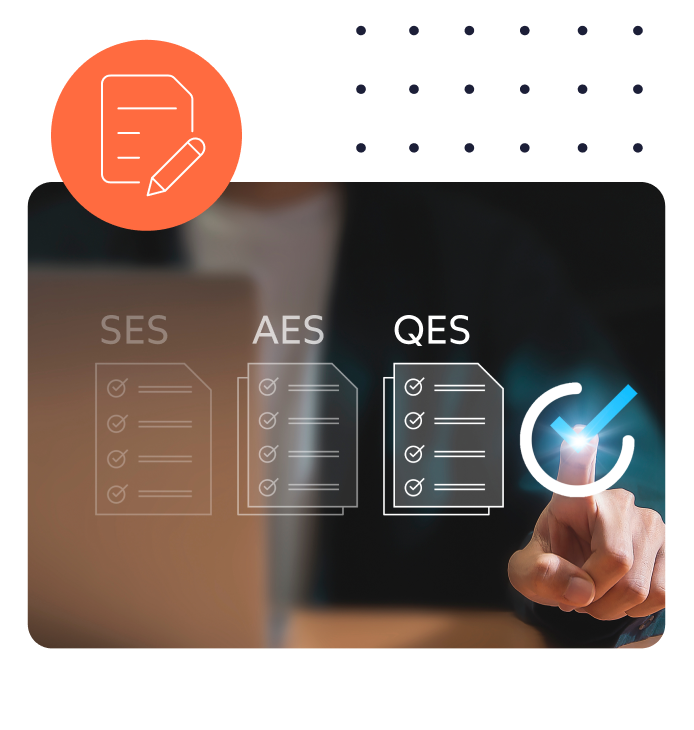With the increasing popularity of cryptocurrencies in Germany, what regulations and safeguards are in place to protect consumers and operators?
Cryptocurrencies, such as Bitcoin and Ethereum, have become very popular in recent years, as increasing numbers of German people invest in digital assets. The rapid expansion of the crypto industry has created an urgent need for regulation to protect the stability of the German financial system and its consumers.
In this article, we will explore the growth of cryptocurrencies in Germany, and the need for a regulatory landscape to govern the use of digital assets. We will examine what the current state of regulation in Germany is, and what challenges regulators, consumers and cryptocurrency exchanges are facing.
Is crypto regulated in Germany?
In April 2023, the Markets in Crypto Assets (MiCA) regulatory framework was passed by European Parliament lawmakers. It aims to protect investors and preserve financial stability, while allowing for greater innovation in the crypto asset sector. It is expected to come into force by the summer of 2024.
On a national level, although cryptocurrencies are legal in Germany, they are not considered legal tender or currency. Instead, regulators classify cryptocurrencies as a financial instrument or asset, which makes them subject to regulations and laws related to securities and investments.
Compared with other European countries, Germany has taken a decidedly proactive approach to regulating cryptocurrencies, passing a law in 2020 that requires all cryptocurrency exchanges operating in Germany to obtain a license from the Federal Financial Supervisory Authority (BaFin). This law also established rules for crypto custodians, including the requirement to hold a minimum amount of capital and ensure compliance with Anti-Money Laundering (AML) regulations.
In Germany, BaFin is the primary regulator for digital assets and is responsible for the regulation of financial markets and institutions. This includes cryptocurrency exchanges, crypto wallets, and custodians.
When it comes to the taxation of cryptocurrencies, things get complicated, as they usually do with German tax laws. Cryptocurrency is subject to capital gains tax if it is held for less than a year before being sold or traded. However, if the digital asset is held for longer, it is exempt. Profits from cryptocurrency mining are subject to income tax. If the cryptocurrency is used to purchase services or goods, it may be subject to VAT. Profits from cryptocurrencies of less than €600 per year are tax-free. There is also an exemption limit of €256 per year for income from staking or lending.
Cryptocurrencies and AML regulations.
It should come as no surprise that there are strict and rigorous AML regulations that apply to cryptocurrency exchanges and other service providers in Germany. Providers must therefore implement measures including KYC procedures and transaction monitoring to prevent money laundering and terrorist financing. An additional measure is to ensure they report suspicious transactions and activities to the relevant authorities.
Providers must also comply with the European Union’s Fifth Anti-Money Laundering Directive (5AMLD), which sets specific rules for virtual currency exchanges and custodian wallet providers. It requires providers and exchanges to register and conduct due diligence on their customers.
German tax residents are required to report their cryptocurrency transactions, including purchases, sales and exchanges, for tax purposes. Failure to do so may result in fines. Cryptocurrency exchanges and service providers must also report any suspicious activity to the Financial Intelligence Unit (FIU).
Discover more about the battle currently being waged on black market gambling in Germany in our blog, ‘Exploring black market gambling in Germany.’
Regulation of cryptocurrency trading in Germany.
Cryptocurrency exchanges in Germany offer a range of trading options, including spot trading, futures trading, and options trading.
Some of the most popular cryptocurrency exchanges in Germany are eToro, Bitpanda, Kraken, Binance, Justtrade and Coinbase (Read more about what Coinbase’s recent expansion efforts mean for the industry at large, in our blog: Coinbase commits to European expansion amid brutal crypto winter.) These exchanges offer a variety of trading pairs, low fees, and user-friendly interfaces.
To buy and sell cryptocurrency in Germany, consumers can use a cryptocurrency exchange or a peer-to-peer trading platform. Cryptocurrency exchanges allow the purchase or sale of the cryptocurrency of choice, which is then stored in a digital wallet.
Cryptocurrency trading and exchanges are regulated by BaFin, which requires all cryptocurrency exchanges operating in Germany to be licensed to comply with KYC and AML regulations. Cryptocurrency traders are subject to capital gains tax and must report their transactions in their annual tax returns.
With great opportunity comes great risk.
Success stories of Bitcoin millionaires, the decoupling of Bitcoin from the stock markets, and the unstable traditional economy have also contributed to considerable crypto hype in Germany in recent years. Unfortunately, this has also resulted in incidents of fraud rising sharply.
The problem is compounded when first-time investors encounter suspicious crypto firms, that, to the uninitiated, look legitimate. It is only months or years later, after profits have been made in the deposit phase, that the investor realizes he has been taken in by a scam.
The BaFin publishes weekly warnings on its website about crypto companies that must cease operations due to legal violations.
What are the security concerns associated with cryptocurrencies?
While the underlying technology behind cryptocurrency offers many benefits, including decentralization and transparency, it is also vulnerable to security threats, especially in the German market, where lawmakers and law enforcement agencies are still trying to address the variety of nefarious activities surrounding crypto.
Some of the security concerns associated with cryptocurrency in Germany include:
- Hacking of cryptocurrency exchanges and wallets
- Identity fraud
- Phishing scams or other types of scams, e.g. financial scammers create genuine-looking documents via email featuring a fake balance on the blockchain
- Computer infection
- Fake deposits of ICOs, tokens or coins on fraudulent crypto or wallet exchanges
- Ponzi schemes that use fraudulent technology and deception.
Popular cryptocurrency scams.
Currently, one of the most common cryptocurrency scams is the “pig butchering scam“, which uses social media or dating apps to gain the trust of victims, to steal their funds.
Other notable cryptocurrency scams include the BitConnect Ponzi scheme, whose founder was indicted in February 2022, and the $4 billion OneCoin scam, which came to light in December 2016.
Check out our blog, ‘How criminals leverage non-compliant crypto exchanges for money laundering’.
How to keep cryptocurrency safe in Germany.
One of the most effective ways to ensure that crypto platforms are protected from fraudulent activities is by implementing a robust KYC process to verify customer identity and prevent customers from bypassing KYC requirements.
IDnow’s proprietary AI-powered fraud detection technology can help detect user behavior that indicates potential risk, allowing for real time monitoring and prevention of account takeovers, identity theft, money laundering, and other types of fraudulent activity.
As the leading European identity verification provider, IDnow’s services have a proven track record of success, providing conversion rates of up to 90%, and are not only compliant within the DACH and UK markets, but assist rapid scalability with compliance in 195 countries and support in over 30 languages
Learn more on our crypto overview page
What is the future of cryptocurrencies in Germany?
The German government has been working on regulating cryptocurrencies for some time, and in 2019 passed a law allowing banks to hold and sell cryptocurrencies.
There have also been discussions about new regulations for cryptocurrency exchanges and initial coin offerings (ICOs), to protect investors and ensure the stability of the financial system. However, the regulatory landscape is still evolving. As the cryptocurrency market changes, regulation may change as well.
The future of cryptocurrency in Germany looks promising, thanks to increasing adoption and potential regulatory changes that could further boost the industry. The German regulatory framework for cryptocurrency is evolving, with key regulators such as BaFin and the Federal Ministry of Finance overseeing compliance and reporting requirements. Strict KYC and AML regulations are in place to reduce fraud on cryptocurrency exchanges.
While Germany is sometimes known for unnecessary red tape, the country is trying to provide a regulatory framework that creates a supportive environment for the cryptocurrency market while protecting consumers. Nevertheless, individuals and businesses should always remain vigilant and aware of the risks and challenges associated with cryptocurrency and its regulatory requirements in Germany.
FAQs
Are cryptocurrencies legal in Germany?
Yes, it is regulated but classified as a financial instrument or digital asset. BaFin is the regulatory body overseeing cryptocurrency exchanges.
What are the regulatory bodies involved in cryptocurrency regulation in Germany?
The main regulatory body for cryptocurrency regulation is BaFin. The Federal Ministry of Finance as well as the Federal Ministry of Justice and Consumer Protection are involved, too. On a regional level, the European Union released its MiCA regulatory framework in early 2023.
What are the reporting requirements for cryptocurrency transactions in Germany?
Individuals must declare cryptocurrency holding on their annual tax filing and report buying and selling activities. Cryptocurrency exchanges must report suspicious activities on their platforms to the Financial Intelligence Unit to be compliant with AML regulations.
Are cryptocurrency profits tax exempt?
Only profits under €600 per annum are tax exempt. Any individual must declare crypto assets on their tax filings and pay taxes on profits exceeding €600 a year.
By

Rayissa Armata
Senior Head of Regulatory Affairs at IDnow
Connect with Rayissa on LinkedIn




